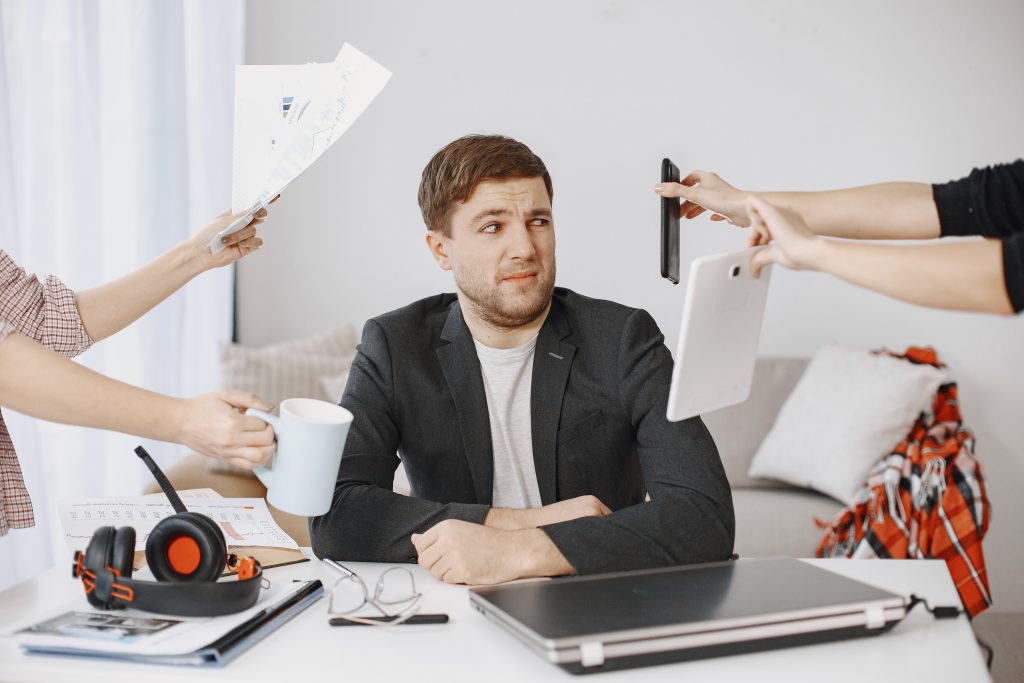In today’s business culture, speed and optimization are constant mantras. But a new trend is emerging among high-performing professionals and progressive companies: stop trying to be efficient. The surprising result? Better decisions, reduced stress, and real creative breakthroughs.

Why It Might Be Time to Stop Trying to Be Efficient
Efficiency is often confused with productivity, but the two are not the same. When you stop trying to be efficient, you free up mental bandwidth and start making choices based on value, not just speed. According to Gallup’s 2023 Global Workplace Report, over 50% of professionals feel burned out despite using numerous productivity tools (Gallup 2023).
What You Gain When You Stop Trying to Be Efficient at Work
Clarity and Strategic Thinking
When every moment isn’t crammed with tasks, your mind can engage in deeper, longer-term planning. Slowing down allows leaders to reflect and prioritize—something that’s impossible in an over-optimized workflow.
Quality Over Quantity
Choosing to stop trying to be efficient shifts your focus from output to outcomes. A thoughtfully written email or a single impactful meeting can often have more business value than a dozen rushed actions.
The Cost of Relentless Efficiency Culture
Constant Multitasking Creates Burnout
A study from the Journal of Occupational Health Psychology showed that the pursuit of non-stop efficiency leads to higher emotional exhaustion and poor work-life balance (Jenkins et al. 2022).
Deep Work Suffers
Cal Newport’s “deep work” concept highlights how meaningful tasks require uninterrupted time. If you’re constantly optimizing small tasks, you’ll never do the hard, creative work that sets businesses apart.
When You Stop Trying to Be Efficient, You Regain Focus
Lowering Cognitive Switching Costs
Every time you change focus, you lose productivity. Research has shown that task switching reduces cognitive performance more than sleep deprivation. By deciding to stop trying to be efficient and reduce multitasking, you actually improve your mental effectiveness (Hallowell 2015).
Businesses That Stop Trying to Be Efficient Are Thriving Differently
The Slow Work Movement Is Spreading
Companies like Buffer are pioneering new ways of working—including 4-day work weeks. After shifting away from constant efficiency, Buffer saw increased team satisfaction, improved focus, and stronger output quality (Buffer 2021).
Human-Centered Work Design Wins
Deloitte’s 2023 report confirms that businesses focusing on sustainable performance—not maximum efficiency—see greater long-term growth, lower turnover, and stronger innovation (Deloitte 2023).
How to Stop Trying to Be Efficient Without Falling Behind
Here are five practical ways to shift your workflow:
- Use fewer tools. Simplify your tech stack.
- Focus on impact. Prioritize high-leverage tasks.
- Embrace blank space. Schedule meetings with yourself to think.
- Batch work by category. Reduce task switching.
- Track outcomes, not hours. Ask: did this move the business forward?
Conclusion
Efficiency has its place—but it shouldn’t be the goal. When you stop trying to be efficient, you open space for better thinking, real strategy, and lasting performance. In today’s business world, it may be the most radical and productive decision you can make.
References:
- Gallup (2023) ‘State of the Global Workplace: 2023 Report’. https://www.gallup.com/workplace/349484/state-of-the-global-workplace-2023.aspx
- Jenkins, A., Bakker, A.B., & Demerouti, E. (2022) ‘Cognitive Overload and Emotional Exhaustion in the Workplace’, Journal of Occupational Health Psychology, 27(3), pp. 344–359. https://supp.apa.org/psycarticles/content/ocp_26_6_629/ocp_26_6_629.pdf
- Hallowell, E. (2015) ‘Overloaded Circuits: Why Smart People Underperform’, Harvard Business Review. https://hbr.org/2005/01/overloaded-circuits-why-smart-people-underperform









